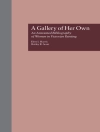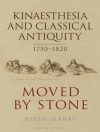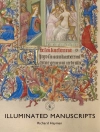Drei Essays Oscar Wilde – Drei Essays des britischen Schriftsteller Oscar Wilde. Im Band enthalten sind Der Sozialismus und die Seele des Menschen, Aus dem Zuchthaus zu Reading und Aesthetisches Manifest. Wilde war wegen Unzucht zu zwei Jahren Zuchthaus verurteilt worden, von wo er Briefe an seinen Freund Alfred Douglas schrieb, in denen er die unmenschlichen Zustände in der Haft schildert. In Die Seele des Menschen unter dem Sozialismus in der Übersetzung von Gustav Landauer beschreibt Wilde die Sozialisierung des Privateigentums als Schritt auf dem Weg des eigentlichen Ziels des Sozialismus, der Verwirklichung des Individualismus. Das Aesthetische Manifest ist eine Auseinandersetzung mit den ästhetischen Ansprüchen in der Kunst.
Über den Autor
Author Oscar Wilde was known for his acclaimed works including ‚The Picture of Dorian Gray‘ and ‚The Importance of Being Earnest, ‚ as well as his brilliant wit, flamboyant style and infamous imprisonment for homosexuality.
Who Was Oscar Wilde?
Author, playwright and poet Oscar Wilde was a popular literary figure in late Victorian England. After graduating from Oxford University, he lectured as a poet, art critic and a leading proponent of the principles of aestheticism. In 1891, he published The Picture of Dorian Gray, his only novel which was panned as immoral by Victorian critics, but is now considered one of his most notable works. As a dramatist, many of Wilde’s plays were well received including his satirical comedies Lady Windermere’s Fan (1892), A Woman of No Importance (1893), An Ideal Husband (1895) and The Importance of Being Earnest (1895), his most famous play. Unconventional in his writing and life, Wilde’s affair with a young man led to his arrest on charges of ‚gross indecency‘ in 1895. He was imprisoned for two years and died in poverty three years after his release at the age of 46.












